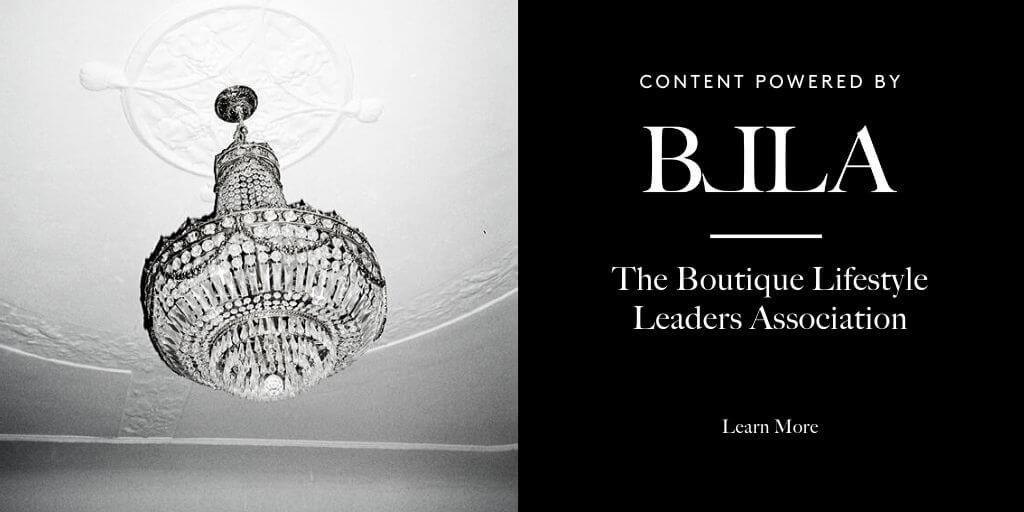Understanding the Boutique Hospitality Industry’s Potential Amid the COVID-19 Crisis
By Frances Kiradjian, Founder & CEO of BLLA
The ongoing Coronavirus pandemic has dramatically shifted life in the United States and across the world for everyone. With the emergence of an immediate, desperate need for spaces to house patients and medical staff, hotels are stepping up to the plate to fill the void. “Boutique hotels of a certain size are perfectly positioned to work swiftly and efficiently to partner with training and government officials for a quick transition – they are located everywhere across the globe” said Jody Pennette of cb5 Hospitality. As many industries rapidly collapse due to the new social distancing mandates and fear of the spreading COVID-19 virus, others are adapting to this new reality and even assisting the nation’s infrastructure as a whole during this incredibly difficult time.
One of the biggest problems facing humanity is that the number of hospital beds available in the world are much lower than the number of projected COVID-19 cases that could require medical attention. New York Governor Andrew Cuomo and other legislators around the U.S. are pressuring the federal government to approve the construction of new hospitals and temporary medical treatment facilities, but there may already be a viable solution to the dwindling number of available hospital beds across the country. While the conversions will need to be properly coordinated, the effort to speed up the process is urgent as time is of the essence.

Hotels Can Become Temporary Hospitals
As state and local governments across the nation as well as the federal government toss around ideas for accommodating the growing shortage of hospital beds in the country, hotels currently offer the base infrastructure required for temporary medical facilities, and they are already built and functioning. Their facilities should satisfy the demand.
The hospitality and travel industries currently rest at a standstill as many parts of the country are under quarantine, social distancing, and even living under shelter-in-place mandates. Those who are able to work from home are helping to stop the spread of the virus. Instead of completely closing down, hotels across the country could adapt and become temporary medical facilities benefiting the public as well as owners and their employees in many circumstances.
This change would offer several tangible benefits immediately. It would instantly slow the spread of the Coronavirus by limiting contact between patients and medical staff exposed to the virus and their families. Boutique hotels could also designate specific floors as lodgings for doctors and nurses, allowing them convenient and comfortable places to rest, change clothes, shower, and eat while maintaining close access to their patients, all while preventing the spread of the virus and not potentially bringing it home to their loved ones. Even residential boutique hotels such as Domio are getting involved to help the efforts.
Most hotels as an industry are in financial freefall, but they have the beds, rooms, generators, linens, kitchens, cleaning equipment, and many of the other infrastructure-level supplies necessary for maintaining a make-shift hospital and refuge for medical staff. Many already have everything in place to create an incredible number of additional hospital beds. This could potentially allow hospitals to focus solely on intensive care and emergencies while COVID-19 patients requiring supervision could move to these temporary facilities.
Additionally, boutique hotel environments are the perfect place for these crucial heroes to regroup, to relax and be prepared to fight another day. They are equipped with the comforts of home as well as upgraded amenities for well-deserved and enhanced downtime. Imagine what a hot meal, a shower and a nap on a soft bed brings them to carry on. Hotels have generators, clean uniforms and linen services.
Developing a New Type of Treatment Center
Shifting hotels into treatment centers would also greatly offset the strain the medical industry currently faces. A boutique hotel would have large storage areas, feeding capacity for large numbers of people, and many feature hi-tech conference rooms that would allow medical staff to meet and coordinate with key figures in the medical community as well as legislators and military personnel. Floors can be separated depending on the status of the patient’s infection.
The recently deployed National Guard and Army Corps of Engineers could play a key role in such a transition, assisting with not only security but also the logistics of getting these temporary medical facilities up and running. Currently, the Army Corps of Engineers and legislators at the federal and state levels are exploring the possibility of converting cruise ships, college dormitories, and vacant hotels into temporary medical shelters.
Government subsidy could smooth the transition of hotels into treatment facilities in a much shorter time than it would take to build new treatment facilities from the ground up, providing a place for patients who do not require critical care to recuperate and receive treatment in a safe environment while simultaneously reducing the current strain hospitals face and slowing the spread of COVID-19.
The benefits to the hotel owner and available staff could also be significant and lasting well beyond the end of this crisis. The goodwill of opening up your property during this time of need will live on beyond the end of the virus in the hearts and minds of everyone. People don’t forget. #SaveBoutiqueHotels

